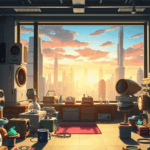Table of Contents
Have you ever wondered how emerging powers are changing the game in global economics? The BRICS nations—Brazil, Russia, India, China, and South Africa—are stepping into the spotlight, reshaping their roles on the world stage. Their recent discussions reveal a significant shift in how these countries view their influence, especially in relation to the Western-led economic order.
In this article, we’ll dive into what’s driving BRICS’ actions, the impact on global trade, and how these developments could reshape international relations.
Understanding BRICS in Today’s Global Economy
The BRICS coalition has become a serious player in the global arena, striving to redefine norms in governance.
During a recent summit, leaders emphasized the importance of member states maintaining their independence while still working together. Why is this so crucial? Because navigating the complexities of international relations requires a balance between individual interests and collective responsibility.
But this call for unity isn’t just about ideology; it’s a strategic must.
BRICS countries are realizing that presenting a united front in global trade talks is essential, especially with rising tensions against Western nations. The recent proposal to impose tariffs on countries seen as supporting anti-BRICS policies signals a shift towards protectionism and economic nationalism.
Could this indicate a new era of trade wars?
Looking at international economic reports, it’s clear that BRICS nations aren’t just looking out for their own interests—they’re also trying to influence global governance. This shift highlights a growing recognition that traditional frameworks might not fully address the needs of emerging economies.
As BRICS rises in power, we can expect more noticeable changes in global trade practices and economic policies.
What’s at Stake and How BRICS is Responding
One of the hot topics among BRICS leaders is the need for fairness in international relations, especially when it comes to economic sanctions and military interventions.
They’ve made it clear that they oppose recent military strikes, such as those on nations like Iran, advocating instead for diplomatic solutions. Why is this important? It aligns with their broader goals of maintaining global peace and stability.
Additionally, BRICS is pushing for peaceful conflict resolution by addressing the underlying causes rather than just the symptoms. In a world where geopolitical tensions often arise from unresolved historical issues, this approach is more crucial than ever. By fostering dialogue and collaboration, BRICS aims to establish itself as a credible alternative to the existing global order.
The push for better global governance is a direct response to the challenges posed by unilateral actions from dominant powers. By championing a more equitable system, BRICS is positioning itself as the voice for developing nations, striving to level the playing field in international economics. Will this new approach resonate globally?
Looking Ahead: Economic Implications for the Future
As BRICS nations solidify their collective identity, the implications for global economics are significant. The likelihood of increased tariffs and trade barriers could lead to a more fragmented international trade landscape. For investors and policymakers, understanding the dynamics at play within BRICS will be key to navigating this shifting environment.
Forecasts indicate that the realignment of economic alliances could disrupt global supply chains, prompting countries to rethink their trade relationships in light of emerging geopolitical realities. For investors, this presents a mix of challenges and opportunities, especially in sectors where BRICS nations hold considerable influence, like energy and commodities. Are you prepared for what’s next?
In conclusion, the strategies and actions of the BRICS coalition mark a pivotal moment in global economic relations. As these nations strive to carve out a more significant role in international trade and governance, the traditional paradigms will undoubtedly be tested. The coming years will be crucial in shaping how these changes unfold and what they mean for the global economy at large.





